As pet owners, we’re often intrigued by the foods we enjoy and whether they’re suitable for our furry companions.
Cauliflower, with its versatility and reputation as a healthy vegetable, is no exception. But can dogs eat cauliflower?
Join us as we explore the potential benefits and considerations of incorporating cauliflower into your dog’s diet.
Contents Overview
What is Cauliflower
Cauliflower is a versatile vegetable belonging to the Brassicaceae family, closely related to broccoli and cabbage.
It’s characterized by its compact white head, known as the “curd,” surrounded by green leaves.
With a mild, slightly sweet flavor, cauliflower can be enjoyed raw or cooked in various dishes, from soups and salads to stir-fries and gratins.
It’s packed with essential nutrients like vitamin C, vitamin K, and fiber, making it a nutritious addition to any diet.
Nutritional Value of Cauliflower
Cauliflower is a nutritional powerhouse, boasting a range of essential vitamins and minerals.
Just one cup of raw cauliflower provides over 75% of your daily vitamin C needs, along with a good dose of vitamin K, vitamin B6, and folate.
Additionally, it’s low in calories and carbohydrates but high in fiber, making it an excellent choice for those watching their weight or managing blood sugar levels.
This cruciferous veggie also contains powerful antioxidants and anti-inflammatory compounds, contributing to overall health and well-being.
Can Dogs Eat Cauliflower?
Yes, dogs can safely eat cauliflower in moderation. This vegetable is low in calories and contains beneficial nutrients like fiber, vitamins C and K, and antioxidants, which can support your dog’s overall health.
However, it’s important to prepare cauliflower properly before offering it to your furry friend. Remove any leaves and stems, and chop the florets into small, manageable pieces to prevent choking hazards.
Cooked cauliflower is easier for dogs to digest than raw cauliflower, so lightly steam or boil it before serving. Additionally, always introduce new foods gradually into your dog’s diet to monitor for any potential digestive upset or allergies.
While cauliflower is generally safe for dogs, excessive consumption may lead to gas or gastrointestinal discomfort, so feed it to your pup in moderation as part of a balanced diet.
Potential Benefits of Cauliflower to Dogs
Cauliflower offers several potential benefits to dogs when included in their diet:
Nutrient-Rich
Cauliflower contains essential vitamins and minerals such as vitamin C, vitamin K, and fiber, which can contribute to your dog’s overall health and well-being.Low in Calories
With its low-calorie content, cauliflower can be a healthy treat option for dogs, especially those watching their weight or on a weight management plan.Digestive Health
The fiber content in cauliflower can promote healthy digestion in dogs, helping to regulate bowel movements and prevent constipation.Antioxidant Properties
Cauliflower contains antioxidants that can help reduce inflammation and oxidative stress in dogs, potentially benefiting their immune system and overall health.Hydration
Cauliflower has a high water content, which can contribute to your dog’s hydration, especially if they’re not keen on drinking water throughout the day.Dental Health
Chewing on cauliflower florets can help promote dental health in dogs by removing plaque and tartar buildup, though it’s essential to monitor chewing to prevent choking hazards.
Potential Risks and Precautions of Feeding Cauliflower to Dogs
Feeding cauliflower to dogs can offer numerous benefits, but it’s important to be aware of potential risks and take necessary precautions:
Digestive Upset
Introducing cauliflower too quickly or feeding large amounts may cause digestive upset in some dogs, leading to symptoms like gas, bloating, or diarrhea. Start with small portions and monitor your dog’s reaction.
Choking Hazard
Raw cauliflower florets, especially if not chopped into small pieces, can pose a choking hazard to dogs, particularly those prone to gulping their food. Always chop cauliflower into bite-sized pieces or lightly cook it to reduce the risk.
Allergic Reactions
While rare, some dogs may be allergic to cauliflower or develop sensitivities to certain compounds within the vegetable. Watch for signs of allergic reactions such as itching, swelling, or gastrointestinal distress, and discontinue feeding cauliflower if any adverse reactions occur.
Thyroid Issues
Cauliflower belongs to the cruciferous vegetable family, which contains compounds called goitrogens. In large amounts, goitrogens may interfere with thyroid function in some dogs, particularly those with pre-existing thyroid conditions. Cooked cauliflower in moderation is typically safe but consult with your veterinarian if your dog has thyroid concerns.
Interactions with Medications
Cauliflower contains vitamin K, which can interfere with blood-thinning medications like warfarin. If your dog is on any medications, especially those affecting blood clotting, consult your veterinarian before incorporating cauliflower into their diet.
Safe Ways to Feed Cauliflower to Dogs
When feeding cauliflower to dogs, it’s essential to prepare it safely to minimize potential risks and ensure it’s easily digestible.
Here are some safe ways to feed cauliflower to dogs:
Cooked Cauliflower
Lightly steam or boil cauliflower until it’s soft and easily mashed with a fork. Cooking helps break down the vegetable’s tough cell walls, making it easier for dogs to digest. Avoid adding any seasonings or oils, as these can be harmful to dogs.Chopped into Small Pieces
Whether raw or cooked, always chop cauliflower into small, manageable pieces to prevent choking hazards. This is especially important for dogs prone to gulping their food.Mashed or Pureed
For dogs with dental issues or difficulty chewing, consider mashing or pureeing cooked cauliflower into a smoother consistency. This makes it easier for them to consume and digest.Mixed with Dog Food
Incorporate cooked cauliflower into your dog’s regular meals by mixing it with their usual dog food. Start with small amounts to ensure it agrees with your dog’s stomach, and gradually increase the portion size if well-tolerated.Frozen Cauliflower
Frozen cauliflower can be a refreshing and crunchy treat for dogs, especially on hot days. Thaw frozen cauliflower and chop it into appropriate sizes before offering it to your pup.Homemade Dog Treats
Use cooked and mashed cauliflower as an ingredient in homemade dog treats. Combine it with other dog-friendly ingredients like oats, eggs, or peanut butter to create nutritious and tasty snacks for your furry friend.Monitor Portion Sizes
While cauliflower can be a healthy addition to your dog’s diet, moderation is key. Monitor the portion sizes and overall caloric intake to ensure your dog maintains a balanced diet and healthy weight.
When to Avoid Cauliflower to Dog
- Thyroid Conditions: If your dog has thyroid issues, consult your vet before feeding cauliflower due to its goitrogenic properties.
- Allergic Reactions: Watch for signs of allergies, such as itching or gastrointestinal distress, and avoid cauliflower if your dog shows any adverse reactions.
- Blood-Thinning Medications: Caution is needed if your dog is on blood-thinning medications, as cauliflower’s vitamin K content may interfere with these drugs.
- Digestive Sensitivities: If your dog has a sensitive stomach or experiences digestive upset after eating cruciferous vegetables, it’s best to avoid cauliflower.
- Choking Hazard: Raw cauliflower florets can pose a choking risk, especially for dogs prone to gulping food, so chop them into small, manageable pieces or opt for cooked cauliflower instead.
Safe and Suitable Alternatives of Cauliflower for Dogs
Several safe and suitable alternatives to cauliflower for dogs include:
-
Broccoli
Like cauliflower, broccoli is rich in nutrients such as vitamin C and fiber, but ensure it’s cooked and served in moderation to avoid digestive issues.
-
Carrots
Carrots are low in calories and high in fiber and vitamin A, making them a healthy and safe treatment option for dogs.
-
Green Beans
Rich in vitamins and minerals, green beans are a nutritious alternative that can be served raw, steamed, or even frozen as a refreshing snack.
-
Sweet Potatoes
Packed with antioxidants, fiber, and vitamins, sweet potatoes can be cooked and offered as a tasty and digestible treat for dogs.
-
Pumpkin
With its high fiber content, pumpkin can help regulate digestion in dogs and is often recommended for gastrointestinal health.
-
Zucchini
Low in calories and packed with nutrients, zucchini is a hydrating and easily digestible option that can be served raw or cooked for added variety in your dog’s diet.
Bottom Line
In conclusion, cauliflower can be a nutritious and flavorful addition to your dog’s diet when offered in moderation and prepared appropriately.
With its abundance of vitamins, minerals, and antioxidants, cauliflower has the potential to contribute to your dog’s overall health and well-being.
However, it’s essential to be mindful of potential risks, such as digestive upset and choking hazards, and to introduce cauliflower gradually into your dog’s diet while monitoring their response.
Consulting with your veterinarian can provide personalized guidance based on your dog’s individual nutritional needs and health status.

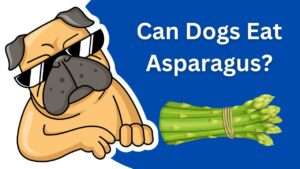
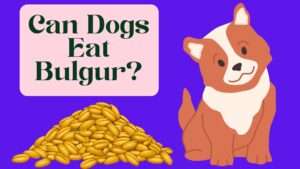

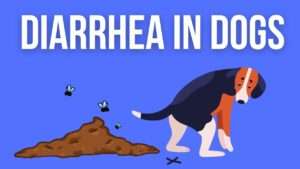
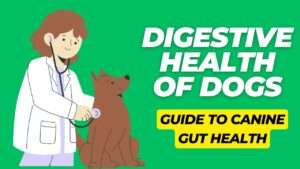
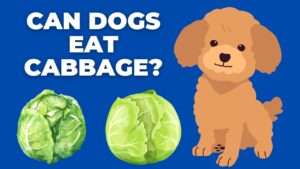





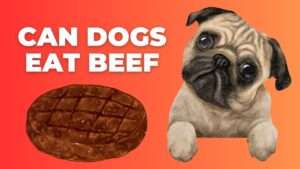
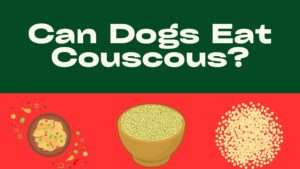

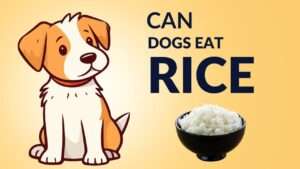



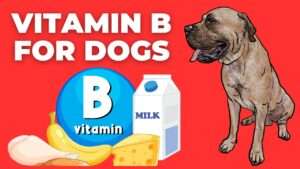
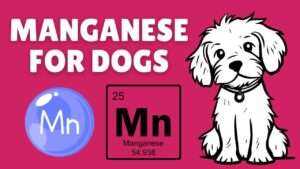
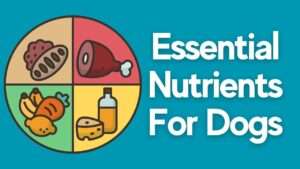


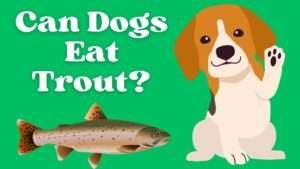










+ There are no comments
Add yours